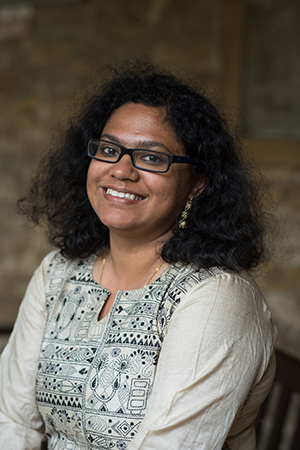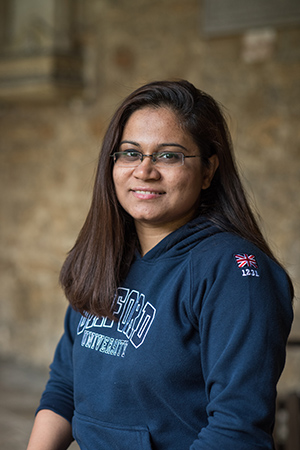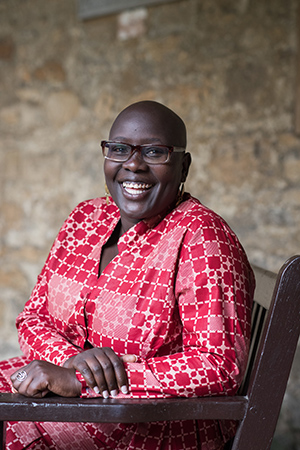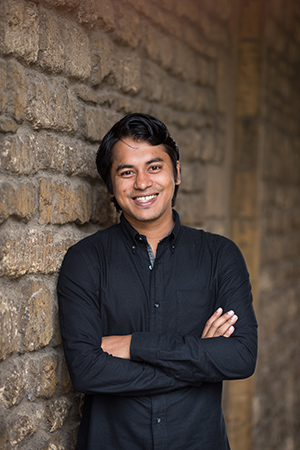MSt in International Human Rights Law
The Master’s (MSt) in International Human Rights Law at the Department of Continuing Education enables human rights professionals from around the world to enhance their understanding of this complex area of legal practice. Scholarships on the part-time course have been funded by donors including Santander, the Alistair Berkley Trust and the Brunsfield Foundation.
The 22-month course incorporates a mix of distance learning, summer schools in Oxford and a dissertation. This summer, 54 students came together in Oxford to share their experiences and enrich their learning through a range of seminars, group discussions and supervisor-led sessions.
Swagata Raha

Swagata has been a human rights researcher in Bangalore, India, for ten years. For the past five years, she has focused her work on the human rights of children. ‘The course has given me an opportunity to slow down and engage deeply with the issues in human rights law that are of concern to me and how I might apply it,’ she says.
Once the course is completed, Swagata will continue to work on a national campaign in India on juvenile justice ‘to ensure that juveniles who are accused of a crime are not tried as adults,’ she explains. Her scholarship was vital in taking up the course: ‘I wouldn’t have been able to undertake it without the scholarship. I’ve devoted my career to human rights law, which doesn’t pay as well as corporate law, for example.’
Maherin Khan

Maherin is a barrister and practising lawyer in the High Court of Bangladesh. She practises across a wide range of areas including business and human rights, women’s rights, and children’s rights. Her particular interest is in the negative impact of various multinational companies on human rights in her home country.
‘For me,' says Maherin, ‘it was a great learning experience. What I have learned on this course will help promote the use of international human rights law as the minimum standard of protection at the domestic level.’ Of her scholarship, Maherin says: ‘It was very important. Otherwise, I don’t think I would have come for my Masters at this point in my career. The entire experience has been very enjoyable.’
Achieng Akena

Achieng has had a varied career in human rights, stemming from a passion to support marginalised and disempowered communities. Most recently, Achieng worked with an East African LGBT fund, Uhai, which supports organisations in the region who are otherwise unable to access more traditional streams of funding.
‘The whole course has been special. From the online part, through to this first summer school,’ she says. The way the course is structured also helps to augment learning. Achieng explains: ‘All the reading feeds into the online discussions which in turn bring in different interpretations and different international contexts. You then see your work from a different perspective.’
Achieng intends to remain connected to a number of organisations in Kenya in an advisory position. She explains that she would not have taken on the course without her scholarship. ‘It was absolutely fundamental,’ she says.
Khaled Saifullah

Prior to undertaking the MSt course, Khaled Saifullah worked in Bangladesh with Article 19, a human rights organisation focusing on the defence and promotion of freedoms of expression and information worldwide. He has also taught leadership at the Bangladesh Youth Leadership Center, which unites young people from diverse backgrounds and engages them in community service and active citizenship. ‘My work centres on young people and human rights for the marginalised segments of society,’ he says.
The course is proving to be of direct relevance to Khaled’s career. He explains: ‘Just last week I took a course on identity, discrimination and equality. Bangladesh is formulating an anti-discrimination law now. As soon as I finish the summer session, I will fly home and work on the draft law.’
Khaled has also enjoyed courses on the philosophical foundations of different laws and policies. ‘I will be able to analyse everything in this light and put these laws and policies to the test. I’ll be able to understand whether the strategies we adopt can advance our society in the long run.’
Khaled’s scholarship was vital. ‘I would not have been able to come to Oxford without it and this is my first visit outside Bangladesh.’
Support Continuing Education